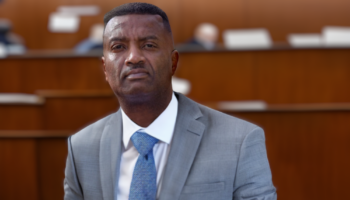Health Care Fraud Conspiracy Under 18 USC 1349
 When a healthcare provider, hospital executive, pharmaceutical company, or physician faces allegations under 18 U.S.C. § 1349, the situation demands serious legal intervention. Health care fraud conspiracy charges can devastate reputations, careers, and companies. As experienced defense attorneys, we aim to explain what constitutes conspiracy to commit healthcare fraud, what the government must prove, and the potential consequences to healthcare fraud convictions.
When a healthcare provider, hospital executive, pharmaceutical company, or physician faces allegations under 18 U.S.C. § 1349, the situation demands serious legal intervention. Health care fraud conspiracy charges can devastate reputations, careers, and companies. As experienced defense attorneys, we aim to explain what constitutes conspiracy to commit healthcare fraud, what the government must prove, and the potential consequences to healthcare fraud convictions.
What is Health Care Fraud Conspiracy?
Under 18 U.S.C. § 1349, health care fraud conspiracy charges are a distinct federal crime. This statute allows prosecutors to charge individuals with merely agreeing to participate in a fraudulent scheme targeting healthcare programs—even if the fraud never materialized. The key distinction here is that the success of the scheme is irrelevant; the conspiracy itself is criminal.
The Three Core Elements Prosecutors Must Prove
To convict a defendant under 18 USC 1349 for a conspiracy to commit healthcare fraud, the government must provide evidence of:
- Agreement Between Two or More People: There must be proof that at least two individuals agreed to pursue a common plan to engage in healthcare fraud. This does not require a formal written contract; even a “wink and nod” understanding can qualify.
- Knowledge of the Unlawful Purpose: The defendant must have known that the goal of the agreement was illegal. Innocent associations or unknowing participation is not enough for a conviction.
- Voluntary and Intentional Participation: The individual must have voluntarily joined the conspiracy with the intent to further its illegal objectives.
Defendants charged with healthcare fraud conspiracy must know that even if the plan is never completed or if the fraud fails, individuals can still be found guilty under 18 U.S.C. § 1349.
Reality Check: Healthcare Fraud Conspiracy in Action
A recent case, in the Middle District of Florida, underscores the harsh realities of these charges. According to U.S. Immigration and Customs Enforcement (ICE), ten individuals were charged in connection with elaborate healthcare fraud schemes involving durable medical equipment companies. Allegations included paying kickbacks and bribes to medical professionals for fraudulent prescriptions and using these false documents to submit claims to Medicare and other insurers.
This case vividly demonstrates that health care fraud conspiracy doesn’t require the fraudulent scheme to succeed. Just organizing or agreeing to the fraudulent activity—even if incomplete—can lead to charges and significant criminal penalties.
Different Conspiracy Laws, One Common Choice
While healthcare fraud can involve several conspiracy statutes like 18 U.S.C. § 371 (general conspiracy) or 21 U.S.C. § 846 (narcotics conspiracy, occasionally linked to controlled substances billing fraud), 18 USC 1349 is the weapon of choice for federal prosecutors. It offers a straightforward path to conviction because it does not require proof of an overt act.
Consequences to Healthcare Fraud
The consequences to healthcare fraud under conspiracy statutes are life-altering. Penalties include:
- Up to 10 years in federal prison per count
- Substantial fines
- Mandatory restitution to healthcare programs
- Asset forfeiture (houses, cars, bank accounts)
- Exclusion from Medicare, Medicaid, and other federal health care programs
- Loss of medical or professional licenses
For corporations and healthcare providers, a conspiracy charge can mean the end of business operations, especially when federal programs cut off reimbursement.
Why Prosecutors Prefer 18 U.S.C. § 1349
One reason prosecutors aggressively use 18 USC 1349 is the relaxed burden of proof. Unlike general conspiracy statutes, 18 U.S.C. § 1349 does not require them to show any overt act was committed. The mere agreement and intent are sufficient for conviction.
This makes it dangerously easy for government agencies to charge multiple individuals—sometimes based on flimsy or circumstantial evidence—sweeping up doctors, executives, billing clerks, and others into sprawling criminal cases.
Defending Against Healthcare Fraud Conspiracy Charges
Our defense approach as a healthcare fraud lawyer involves carefully dissecting each of the required elements:
- Challenging the Existence of an Agreement: Many alleged conspiracies rely on questionable witnesses or ambiguous communications.
- Refuting Knowledge and Intent: Defendants may have been unwitting participants or misled by others.
- Demonstrating Lack of Willful Participation: Evidence that a defendant acted innocently, or even resisted illegal acts, can undermine the government’s case.
Additionally, we pursue pretrial motions to suppress unlawfully obtained evidence and leverage expert witnesses to counter complex financial or billing allegations.
https://www.ice.gov/news/releases/10-charged-connection-health-care-fraud-schemes
Common Situations Where Healthcare Fraud Conspiracy May Arise
Healthcare fraud conspiracy charges under 18 U.S.C. § 1349 can emerge from a wide range of real-world scenarios, often catching individuals and companies off guard. One common situation involves billing for medically unnecessary services. For example, a clinic administrator and a physician might agree to submit claims for high-reimbursement procedures that patients did not actually need.
Even if no patient is physically harmed, the government may allege a conspiracy to commit a crime because the two parties agreed to defraud a health care benefit program. Another frequent situation occurs with durable medical equipment (DME) suppliers working hand-in-hand with prescribing physicians. If both parties understand that the equipment is not medically necessary but still proceed with the billing, this could result in a conspiracy to commit healthcare fraud charge under 18 USC 1349. Pharmaceutical companies are not immune either; marketing teams and physicians can become entangled if there is evidence they agreed to off-label marketing schemes designed to drive sales at the expense of federal healthcare programs.
Kickback arrangements are another fertile ground for healthcare fraud conspiracy allegations. If hospital executives agree to funnel consulting fees or lavish perks to physicians in return for patient referrals, they may be charged not only with Anti-Kickback Statute violations but also with health care fraud conspiracy. These schemes often involve multiple parties: marketing executives, business development officers, and medical directors, creating a web of agreements that prosecutors argue is designed to defraud Medicare, Medicaid, or TRICARE. Importantly, the consequences to healthcare fraud conspiracies are severe even if none of the billed claims are ever paid. Prosecutors need only show an agreement and an intent to commit fraud; the execution of the fraud is unnecessary for conviction under 18 U.S.C. § 1349.
Telemedicine, a rapidly growing sector, has also become a target. Telehealth companies partnering with physicians to approve prescriptions or services without proper medical justification have come under intense scrutiny. If emails, contracts, or even informal conversations suggest a knowing and willing agreement to bill federal programs improperly, those involved can quickly find themselves facing a conspiracy to commit a crime allegation. Home health care agencies represent another common example, where owners and recruiters work with doctors to falsely certify patients as homebound, thus qualifying for unnecessary services reimbursed by Medicare. In all these examples, the mere formation of a plan—whether or not the plan is successful—can lead to devastating consequences to healthcare fraud charges.
Choosing the right healthcare fraud defense lawyer when facing health care fraud conspiracy charges is critical. Prosecutors often use 18 U.S.C. § 1349 aggressively because it streamlines their burden of proof. The government prosecutor can focus solely on proving the unlawful agreement and intent. Therefore, any healthcare provider, executive, or organization under investigation must act quickly and strategically. Defending against allegations of health care fraud conspiracy requires your lawyer to be proactive, knowledgeable, and aggressive legal approach to preserve professional reputations, businesses, and personal freedom. With the government pouring more resources into healthcare fraud investigations, understanding these scenarios—and how easily routine business decisions can be misconstrued as criminal agreements—is essential for anyone involved in the healthcare industry.
Preventing Healthcare Fraud Conspiracy Allegations
Prevention is always the best strategy. Providers, executives, and companies must:
- Train staff thoroughly on billing, coding, and documentation compliance.
- Conduct regular internal audits.
- Vet business partners carefully.
- Document all legitimate business practices clearly.
Proactive measures not only prevent inadvertent violations but also provide critical defenses should charges arise.

Practice Lead
Speak to Theodore Watson (Admitted to the Supreme Court of the United States). TOP Lead Attorney- Get a Free Attorney Consultation:
Serious Charges Demand Serious Defense
Facing a charge of health care fraud conspiracy under 18 USC 1349 is an existential threat to your career and freedom. The government does not need to prove the conspiracy succeeded—merely that there was an unlawful agreement and intent.
Given the severe consequences to healthcare fraud, choosing a seasoned healthcare fraud lawyer with deep experience in federal criminal defense is crucial. Our firm is dedicated to defending providers, executives, hospitals, and healthcare companies against these aggressive prosecutions.
If you are under investigation or have been charged with healthcare fraud conspiracy, time is not on your side. Early intervention often makes the critical difference between conviction and vindication.
Contact us today online or call toll-free 1.866.601. 5518 and speak to Theodore Watson for immediate defense representation and for a confidential consultation with a top healthcare fraud lawyer experienced in fighting conspiracy to commit a crime charges under 18 U.S.C. § 1349.
